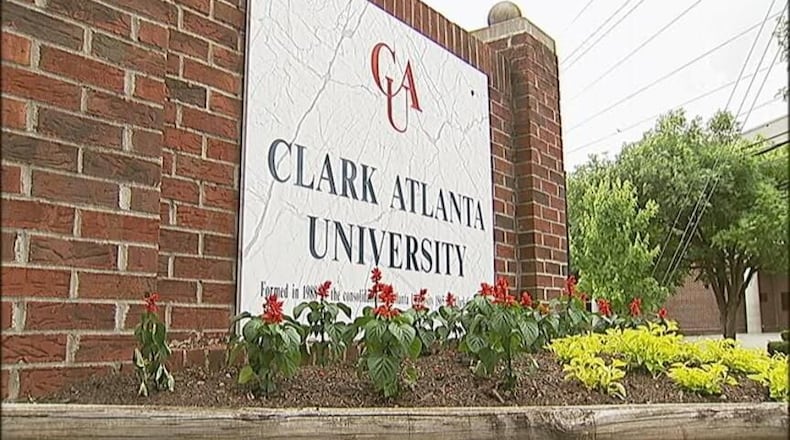Days before the fall semester is scheduled to start, Clark Atlanta University has put 464 students in temporary housing because it’s behind schedule in renovations at two residence halls.
The delay has angered parents and students who traveled to Atlanta, expecting the rooms at CAU Suites and Heritage Commons to be ready before classes start Wednesday. Parents and students have voiced their outrage on social media, saying conditions in one temporary housing facility, located near Wellstar Atlanta Medical Center, a five mile commute from Clark Atlanta, are in bad shape and that the university should have found a place closer to campus.
“How don’t y’all have most of the dorms or on-campus apartments ready?,” one person who identified herself as a current student posted on Twitter.
The university’s president, George T. French Jr., wrote a letter Sunday apologizing for the problem and outlining several steps to make amends, such as a 50% refund this semester for impacted students. Housing costs last year were between about $3,000 and $4,750 per semester.
“It is indefensible. As the ‘Buck stops’ with me, I prefer to acknowledge this dereliction and ask your forgiveness rather than making excuses,” said French, who became president in 2019.
Credit: Steve Schaefer
Credit: Steve Schaefer
French said in the letter that the university is racing to complete the renovations and it will pay for parking and shuttle service to transport students to and from campus for activities and meals. Students are staying in several downtown Atlanta hotels. He noted the problems are impacting about 20% of the 2,150 students assigned to student housing.
Clark Atlanta had about 4,000 students last year, but it did not allow them on campus for the fall semester because of the coronavirus pandemic. The university is requiring COVID-19 vaccinations to be on campus this fall, unless a student has received an exemption.
The housing renovations include replacement of damaged pipes, ceiling tiles, floors and water heaters, along with new furniture for rooms. The letter does not explain why the renovations are behind schedule. University officials did not say Monday how much the renovations cost, but said no federal pandemic funds the school has received are being used.
Clark Atlanta, Georgia’s largest private historically Black university, has had problems with student housing at the start of prior school years. French alluded to a situation several years ago. In 2018, as many as 150 students said their rooms weren’t available due to what they were told financial issues, The Atlanta Journal-Constitution then reported. Bob Holmes, a former state representative who taught at Clark Atlanta for about three decades before retiring in 2005, recalled in a telephone interview Monday that some students temporarily lived in a hotel near the former Turner Field in the early 2000s at the start of one school year.
Nearly all colleges and universities have made updates to campus buildings and classrooms, such as erecting plexiglass between professors and students, since the pandemic began as part of social distancing guidelines. Lynn Pasquerella, president of the Association of American Colleges & Universities, called it “some of the hidden costs of the COVID-19 pandemic.”
The challenge, she and others say, is greater for historically Black colleges and universities since more of their buildings need renovations. Clark Atlanta listed building maintenance in its 2018-2023 strategic plan, and officials said Monday it does not have enough on-campus housing to meet student demand.
One recent analysis by the company, Gordian, and APPA, Leadership & Educational Facilities, an association that represents more than 1,300 colleges and universities worldwide, said schools spend about $37 billion annually to operate and maintain buildings, but there’s a $112.3 billion maintenance backlog. APPA has called for more federal funding for aging facilities and HVAC upgrades.
Pasquerella said many schools have deferred maintenance because they’re often at full capacity.
Holmes said HBCUs like Clark Atlanta have not had enough money to properly maintain their student housing. Holmes said it’s a two-pronged problem: The schools, in many cases, do a poor job fundraising and philanthropists have historically given less money to HBCUs.
“That’s the reason why they aren’t able to do renovations,” he said.
About the Author
Keep Reading
The Latest
Featured





